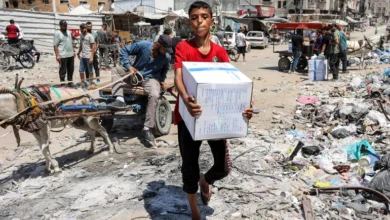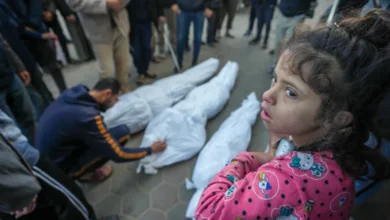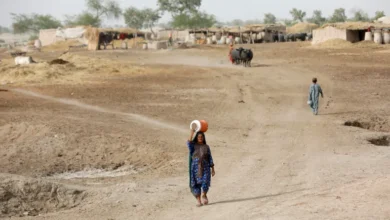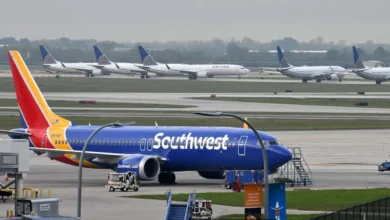Death of Hajj-bound pilgrims raises questions about compliance in home countries
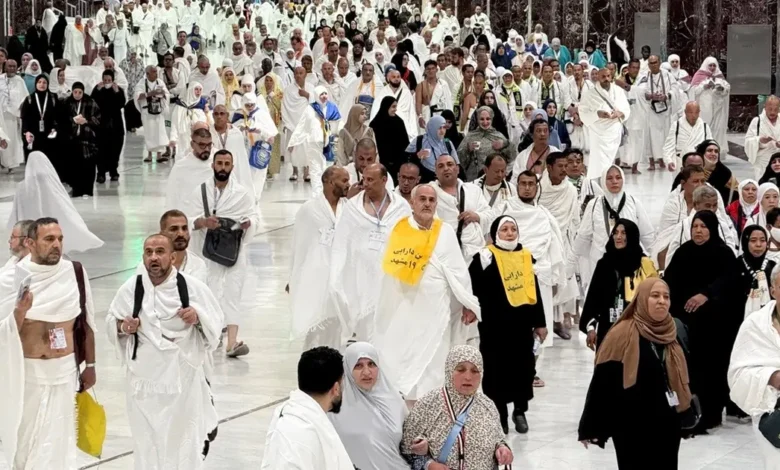
The death of six of pilgrims heading to Saudi Arabia where they were set to perform Hajj has raised questions about measures taken at their home countries to ensure that pilgrims are physically capable of performing the ritual.
According to media reports six pilgrims have died while on their way or just after landing in Saudi Arabia to perform Hajj.
Indonesian media outlets had reported that an Indonesian pilgrim died during flights to Medina. The woman in her sixties suddenly collapsed on board.
A video showed her body lying and covered aboard as passengers were trying to comfort a man, who appeared to be a relative of the woman who died on the flight.
Indonesian media reports said that the woman was later buried in Medina, home to Islam’s second holiest mosque.
While the initial medical report stated that the cause of death was dehydration, the mission suggested that a heart attack was the primary cause.
In Malaysia, authorities confirmed the deaths of five pilgrims due to heart attacks. In Pakistan, five deaths have been recorded since the start of the Hajj pilgrimage, most of whom died from health complications just after their arrival to Saudi Arabia.
While Indonesia and Malaysia previously accounted for the majority of early Hajj deaths, the list has recently expanded to include other countries such as Libya and Bangladesh.
Most of these deaths are elderly people suffering from chronic illnesses.
While all deaths reported up to the end of May were not linked to mass accidents or epidemics, some occurred before, during or just after their flights.
The Saudi Ministry of Health had emphasized in its guidelines to foreign missions the need to ensure pilgrims’ physical fitness and undergo medical examinations to prove their ability to endure the rigors of Hajj.
Indonesian pilgrims benefit from a Saudi scheme offering Hajj-linked facilities, within an initiative known as the “Mecca Route.”
In addition to Indonesia, pilgrims from Malaysia, Pakistan, Morocco, Bangladesh, Turkey and Cote d’Ivoire benefit from the “Mecca Route” initiative.
The initiative aims at providing fast-track services to pilgrims from these countries by smoothly finalizing their procedures in the homeland, tagging and sorting out luggage at the departure airports and eventually delivering their luggage right to their residences inside Saudi Arabia.
They head directly to their residences in Mecca and Medina on designated smooth routes.
These steps are implemented after verifying all health requirements are met.
However, these recent deaths, which have affected various nationalities through different travel methods, have raised questions about the fitness of some pilgrims to perform the physically demanding Hajj under harsh climatic conditions.
It also raised concerns about the extent to which some countries adhere to the health requirements set by Saudi Arabia and that aim at ensuring the safety of pilgrims, according to observers who spoke to Saudi media outlets.
Saudi physician Ahmed Al-Omari addressed the issue in an interview with Asharq al-Awsat saying that “if some pilgrims collapse during the flight or upon arrival, how will they fare in the extreme crowding and temperatures that can reach 45 degrees Celsius in Arafat and Mina?”
Last year, hundreds of people died while performing Hajj amid soaring temperatures. The total death toll during last year’s pilgrimage reached 1,301, according to Saudi health ministry.
83 percent of the deceased were pilgrims who had undertaken the journey without the necessary permits, according to the ministry. It said that the Kingdom provided approximately 1.3 million preventive services to pilgrims, adding that authorities also delivered over 465,000 treatment services, including 141,000 for those without Hajj authorization.
The Kingdom has been keen on ensuring that the pilgrims’ needs are met, however, pilgrims without Hajj authorization from the authorities organizing the process often find themselves either without guidance or far from several places offering assistance.
Facilities, including buses, are pre-arranged and conveniently accommodate regular pilgrims who have registered in advance.
Some governments have acknowledged the existence of fraud by some travel companies to transport pilgrims illegally due to the great pressure on visas and costs.
To tackle this, the Kingdom has issued an extensive awareness campaign ahead of this year’s Hajj season, warning against fraud Hajj announcements and warning pilgrims from embarking on the journey without authorization.
The Kingdom has also warned facilitators of violators from breaking the law under the threat of being held accountable legally.
Climate studies have raised the alarm about further increases in temperatures in the coming years.
The scientific journal Geophysical Research Letters previously noted this in a 2019 study, stating that climate change will raise heat stress for pilgrims to levels exceeding the threshold for severe danger in the coming years.
A study from King Faisal Specialist Hospital found that temperatures in Mecca are rising at a rate of 0.4 degrees Celsius per decade, but heatstroke cases have dropped by 74.6 percent, resulting in a nearly halved mortality rate.
To tackle the rising temperatures, the Saudi government has implemented many measures.
These include spray fans and water mist columns to cool open spaces, the distribution of water and umbrellas, the provision of air-conditioned transportation, free medical services during the Hajj, in addition to painting the asphalt surfaces of the Namirah Mosque, near Mount Arafat, to lower temperatures.




